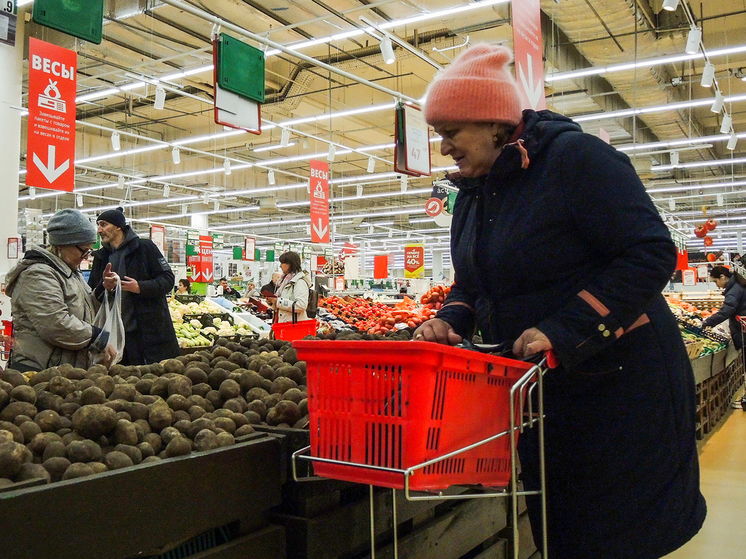Experts explained the position of the former finance minister regarding the actions of the Central Bank of the Russian Federation
The Bank of Russia alone will not cope with the growth of inflation in our country, because the set of tools available to the regulator is limited. This was stated by economist, former finance minister of the Russian Federation Mikhail Zadornov. A number of sectors of the economy are currently excluded from the effect of credit rates due to subsidies and benefits. To more successfully combat inflation, the Central Bank of the Russian Federation needs the support of the Ministry of Finance. MK found out from experts how correct this position is.

According to Zadornov, it is wrong to fight price growth in Russia only by tightening the Central Bank of the Russian Federation's policy. «You can't do anything with the rate alone,» the economist believes. «Because the Central Bank has found itself limited in the instruments it can use.» The former finance minister added that the balancing effect of the exchange rate and the budget rule is now greatly distorted, which is why the connection between monetary policy and fiscal (tax and budget policy — editor's note) through the budget rule has been significantly disrupted. Of the instruments available to the Bank of Russia to influence inflation, only the key rate and regulatory measures regarding banks remain. At the same time, lending rates do not affect a number of industries because they have subsidies and benefits. For a more successful fight against inflation, the regulator needs the support of the Ministry of Finance, Zadornov believes.
Let us recall that at the last press conference following the meeting of the regulator's Board of Directors on July 26, MK asked the Chairperson of the Central Bank of the Russian Federation Elvira Nabiullina whether the Bank of Russia plans to build cooperation with other agencies to combat inflation. To this, the head of the regulator replied that each structure has its own tasks: the Central Bank's competence is monetary policy, the regulator influences aggregate demand. And the government, in turn, influences the budget, due to the balanced policy of the budget rule. And now Mikhail Zadornov has actually called for coordination of the actions of the Bank of Russia and the Ministry of Finance. «The Central Bank influences only part of the lending market, and part of the economy does not feel this — the budget takes on all the difference,» he said. «Without the support of the Ministry of Finance, the Central Bank will not succeed in the fight against inflation.»
The experts surveyed generally agree with the position of the famous economist.
“Zadornov is right. Inflation is influenced not only by the key rate, but also by a number of factors that are beyond the control of the Central Bank of the Russian Federation. At every conference on the key rate since the beginning of 2024, representatives of the mega-regulator emphasize that the economy is overheated: demand exceeds supply.
How does it work? Consumers are willing to pay for goods and services that cannot be produced in such quantities. Companies hire personnel at any cost to meet demand. Unemployment is at historic lows. Salaries are rising. Consumption is growing as wages rise: as a result, prices in the country are rising.
Inflation is currently at a relatively low level. In fact, the high key rate is not fighting inflation, which is under control, but rather high GDP growth rates. The key rate of 18% is prohibitive for investment. This leads to some representatives of big business already stating that they are stopping investment and focusing on working with the debt burden. Gradually, other companies will slow down or stop investment, and the GDP growth rate will decrease.»
«It should be noted right away that in today's conditions the Central Bank is really aiming to reduce inflation. And of course, only actions to change the key rate will not lead to the forecast values. The traditional rule, by which individuals and legal entities understand how to work, sounds like «the higher the key rate, the more expensive the money becomes», as in such a situation the credit demand falls, and deposit operations increase in their volumes. Less spending on purchases is made, prices become more manageable: it is more difficult to increase them, even when costs rise. And as a result, inflation slows down.
Accordingly, this rule also works in the opposite direction. But the result of its work is not instantaneous, it is impossible to see the expected dynamics of movement towards the inflation target in a week or a month. Therefore, the Central Bank of the Russian Federation and the Ministry of Finance use tools and conduct monetary policy in such a way as, on the one hand, to prevent inflation from accelerating even faster, but, on the other hand, to give the economy an opportunity to adapt and gradually return inflation to the target. And this is exactly what Mikhail Zadornov emphasized.
He emphasizes that market entities work according to more complex algorithms, that is, part of the market will work with budget sector tools (this is precisely the block not of the Bank of Russia), part — with monetary policy tools (and it is for this market that the decisions of the Central Bank of the Russian Federation will be the main ones). But they do not work as separate organisms, their activities intersect from the moment of planning purchases to the moment of changing market demand from consumers.
Of course, each model — both monetary and monetary — with their set of tools has its own downsides. But today there are still serious non-monetary incentives in the market for various industries.”


